“The True Value of Educating and Advocating for Others”: An Interview with Kupenda’s New Board Chair, Leah Battillo
by Lauren Blair
Posted on December 20, 2022
Beliefs, Child, disability, education, Health, International, marginalized, stigma, vulnerable
This month, I had the privilege of interviewing Leah Battillo, a special education teacher, board-certified behavior analyst (BCBA), and current Kupenda board chair. Last year, after deciding to step down from 12 years of board service (mostly as chairperson) to work as a program consultant for Kupenda, it was a privilege to transfer this meaningful role to Leah’s competent leadership.
With a degree in elementary education and linguistics and a concentration in special education and English as a second language from Gordon College, a master’s in applied behavior analysis with an emphasis in autism from Ball State University, and a BCBA license, Leah provides an instrumental voice that recognizes the need for individualized care for people with disabilities and their support systems as well as improving the role of education in their lives.
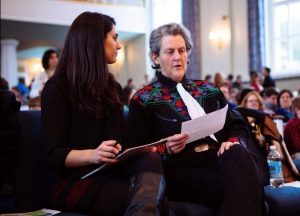
Leah with renowned autism activist, Temple Grandin
Leah’s experience in leadership roles, including founding and directing Gordon College’s Beyond Disabilities Week with Temple Grandin as the keynote speaker, acting as a project manager for the internationally recognized Accessible Icon Project, and working as a BCBA supervisor demonstrate her commitment to organizing, teaching, and casting a vision for others to follow.
Currently, Leah works as a special needs consultant in her community and church, providing professional development for teachers, parents, and volunteers, as well as in-home supervision and training for parents and behavior technicians. She is also a wife and mother to twin daughters, while expecting a new baby in January.
In my encounters with Leah, I have marveled at her seemingly inexhaustible drive and her pervasive attitude of kindness. I speak on behalf of all our staff and board members when I say that we are profoundly grateful for her fresh perspectives and investment in furthering Kupenda’s mission!
Lauren: How did you first hear about Kupenda and why did you choose to get involved?
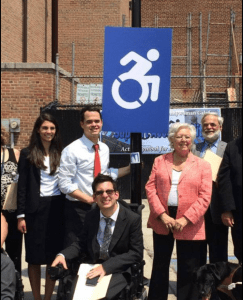
Leah and members of the Accessible Icon Project
Leah: When I was in college, I was a Project Coordinator for the Accessible Icon Project, so I worked with [Kupenda board member] Jeff [Gentry]. I also coordinated and founded a Beyond Disabilities Week at my college. We had Cindy come in as a panelist for one of the nights. She shared about Kupenda and her work. … Years later, Jeff reached out to me because he was on the board. … So I kind of got reinvested in it and believed in the mission, especially being an educator and doing advocacy work in the past. Knowing that the three core missions are advocacy, medical [care], and education–it was a no brainer for me.
Lauren: How did your passion for your career overlap with Kupenda’s mission?
Leah: I would say it’s two-fold. Prior to having my kids, I was a special education teacher, so I obviously worked with a lot of children with various disabilities. Now I’m a BCBA, which is a Board-Certified Behavior Analyst, so I work specifically with individuals with autism and their caregivers in providing coaching support and environmental modifications for individuals to live more independently. I think through both of my professional experiences, I’ve seen how it’s people’s attitude that make a really big difference in what … individuals are able to achieve or not. … Simple environmental modifications can make a world of a difference and help the individual, the family, and the community provide more access to opportunities. Working in the field day in and day out, I know the true value of educating and advocating for others and that just naturally translated into Kupenda’s mission and what they do on the ground.
Lauren: How has your faith impacted your interest in supporting Kupenda?
Leah: I do see all individuals as being a child of God. It’s connecting the concept of heaven here on earth, where obviously there’s a divide between what’s possible now and what’s possible later, but it’s trying to bring God’s reality to life in the fullest way we can in a broken system in a broken world. So I think my faith in God helps me realize the importance and value of every single individual on this planet. They deserve access to education and medical treatment and a safe environment to grow up in to fulfill God’s purpose for their lives, but also so that we don’t underestimate anybody just because of the way they look, the way they act, or what they can or cannot do. So many times human beings measure somebody based off ability, where God just sees the individual for the individual. They’re valuable because they’re his children. So I think it’s that core belief that kind of motivates me to work with people with disabilities and also to be part of Kupenda–the value that every single human being has. And I think God created each person to be special and unique in their own way. And we’re called to love others.
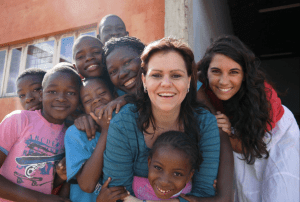
Leah volunteering with children in Mozambique
Lauren: What inspired you to start supporting a child?
Leah: What inspired me [to support a child] is that I think every child deserves education, access to medical care, and a safe environment to thrive in. … Every child deserves that and… it’s one step closer to the vision that I would hope and imagine for all children.
Lauren: How is Kupenda different from other organizations you’ve come across?
Leah: I think because we … have a team on the ground and a team here … that is one of the reasons why I’m so invested in Kupenda. I think that’s really important. When I went to Mozambique [for a mission’s trip through another organization], I learned that you really need to understand the culture and live in the culture in order to actually help. … So many people just send shoes, clothes, or school supplies abroad, and they think that they’re helping. … When I went to Mozambique, I learned that the guards at the airport take more than half of that stuff and it never actually gets to the people. So it’s more beneficial to give money to the organization to buy clothes, so you’re helping people who are selling the clothes and the people who are actually benefitting from the clothes. … So you need to understand the needs of the country in order to reach people.
Lauren: Any other differences you’ve noticed?
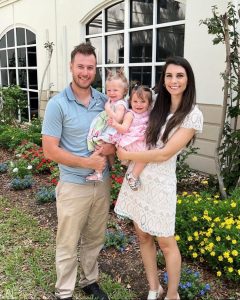
Leah with her husband and two young daughters
Leah: I would say that [Kupenda has] more of a community approach. The community leaders reach more people than if you’re just going to individuals. … And I think, too, realizing if you’re teaching the leaders, you’re reaching more people. … They’re the people who actually know their community and who are teaching every single week. … So I think that’s also something that Kupenda does really well, is that community model … understanding the needs and how people relate to one another.
Lauren: What are some of the biggest similarities or differences you’ve witnessed between your work with people with disabilities in the United States and Kupenda’s work in low-income countries?
Leah: I think in America, we have greater access to medical care, education, basic food supplies, even how schools are structured and staffed. … In the United States, I had a classroom with just eight students with three assistants. In Kenya, and other parts of the world. … you can have one teacher … and 50 students … and you don’t have classroom supplies. … [They’re] trying to just meet basic needs versus individualized needs.
Lauren: Is there anything that has surprised you in your time with Kupenda?
Leah: I think it’s the beliefs and attitudes around disabilities—how much [in low-income countries] the mothers are blamed for having a child with a disability or the child themself is blamed for something that is outside their control. … If you do have a disability, you may be the last one to be fed because you’re not deemed as valuable or important. You may not have the opportunity to go to school. You may not have the opportunity to even socialize or leave your house. … So I think that’s surprising how many people believe in that stigma and how much more work there is to be done.
Lauren: What do you hope for Kupenda going forward?
Leah: Obviously, continuing to reach more people. … [I’d] really love to see education reform, in particular, because of my interest in that. …I’m [also] proud of Kupenda for meeting immediate needs with the drought … especially when people’s lives are in risk. So I would hope that we would continue to focus on people as whole. … and replicate our work in other areas as well. I feel like we’ve been doing a really good job, and I would just like us to continue the work despite any challenges or obstacles that come our way.
Want to keep updated on Kupenda’s work?
You can follow us on Facebook, Instagram, LinkedIn, and Twitter.
And please also sign up for our monthly newsletter and updates here.
If you’re interested in supporting a child, head over to our sponsorship page to learn about how you can make a difference for just $30 / month.
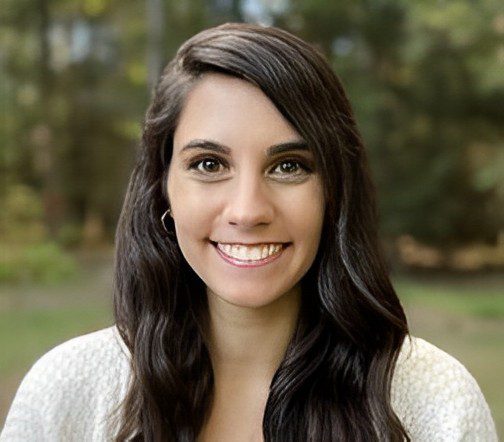



Leave a Reply